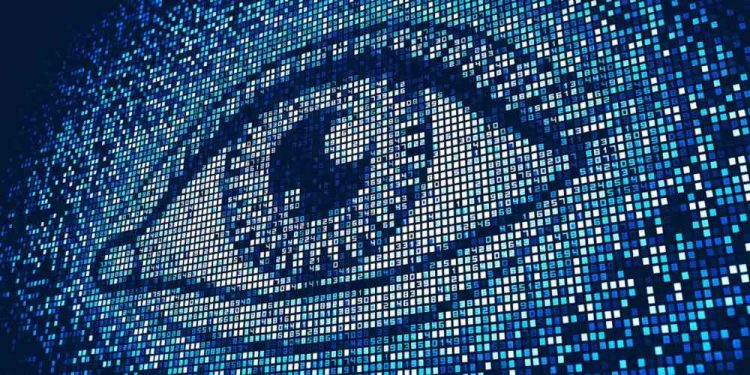(WND News Center)—A new report from the Institute for Justice is warning Americans that their banks – and the federal government – secretly are spying on their money, their spending habits, their banking accounts and more.
With the punishment up to and including closing those accounts if the owner strays from what the government approves.
Such as shopping at specific retailers, or making cash deposits just under $10,000.
The institute explained, “Most Americans have no idea their financial accounts are being monitored. And that’s by design. The same federal law that mandates this surveillance also prohibits banks from telling customers about these reports.”
That means the first indication that a consumer may have about a government bureaucrat’s issue with their activity is when their accounts are closed.
The institute explained Bryan Delaney, a bar owner in New York City, learned the hard way in 2023 when his corporate and personal accounts were shut down.
It seems he offended Deep State members by often depositing cash amounts under $10,000 from his bar business.
The feds demand that such deposits over $10,000 are reported, and those under $10,000 are documented “because they do not trigger” that requirement.
“Bryan wasn’t trying to avoid any $10,000 reporting requirement; his bar’s revenue simply happened to fall below that threshold,” the institute reported.
Other suspicious activities include regular cash deposits or withdrawals, overseas transfers, donations to “controversial” groups, purchases at gun shops or shopping at Dick’s Sporting Goods or Cabela’s.
The Institute explained, “This is called ‘de-banking,’ and it’s far more common than you might think. Thousands of Americans have had their accounts closed with little warning or explanation.”
It’s all because of a federal law that imposes demands on bank to monitor accounts.
Actually, the institute said, “Federal law provides that any transaction can be ‘suspicious’ if the ‘bank knows of no reasonable explanation for the transaction.’
“In other words, ordinary financial activities are presumed guilty until proven innocent.”
And it gets worse, the IJ explained: “These surveillance laws more broadly harm Americans by creating a vast database of financial information that is susceptible to abuse by bad actors both within and outside government.”
That’s because federal, state and local – even foreign – agencies are given access to the reports without any warrant.
The IJ is fighting the schemes.
“The Fourth Amendment guarantees our right to be ‘secure’ in our ‘persons, houses, papers, and effects.’ That protection for ‘papers’ should, on its face, extend to the kind of sensitive financial information held by banks,” the organization explained.
- Preserve your retirement with physical precious metals. Receive your free gold guide from Genesis Precious Metals to learn how.
Content created by the WND News Center is available for re-publication without charge to any eligible news publisher that can provide a large audience. For licensing opportunities of our original content, please contact [email protected].
This article was originally published by the WND News Center.
What Would You Do If Pharmacies Couldn’t Provide You With Crucial Medications or Antibiotics?
The medication supply chain from China and India is more fragile than ever since Covid. The US is not equipped to handle our pharmaceutical needs. We’ve already seen shortages with antibiotics and other medications in recent months and pharmaceutical challenges are becoming more frequent today.
Our partners at Jase Medical offer a simple solution for Americans to be prepared in case things go south. Their “Jase Case” gives Americans emergency antibiotics they can store away while their “Jase Daily” offers a wide array of prescription drugs to treat the ailments most common to Americans.
They do this through a process that embraces medical freedom. Their secure online form allows board-certified physicians to prescribe the needed drugs. They are then delivered directly to the customer from their pharmacy network. The physicians are available to answer treatment related questions.





